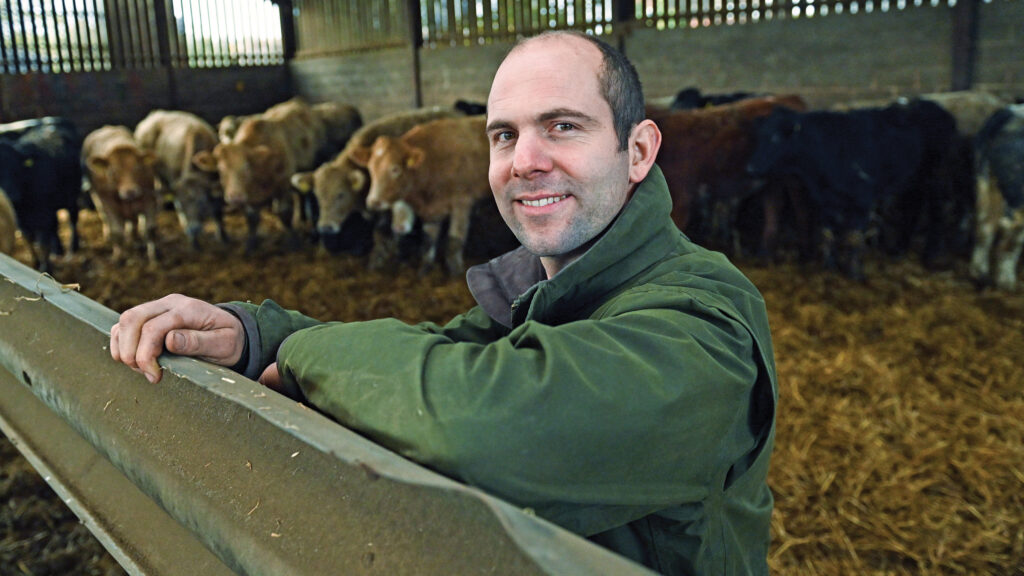Farmer Focus: Spring warmth boosts mood but not lamb price
 Dan Phillips © Richard Swingler
Dan Phillips © Richard Swingler Well, what beautiful weather we have enjoyed since I last wrote.
Farming seems much easier and enjoyable when Mother Nature is on our side.
After the past two awful springs, we were definitely due a good one.
See also: Subsidised abortion screening scheme reopens
Lambing is all but over, and has gone relatively smoothly, with lambs really romping away out in the field.
The only blip was a bit of late abortion in the yearlings.
This wasn’t helped by the lack of vaccine back in the autumn, meaning we couldn’t cover them as we normally would.
Blood tests will be taken shortly to work out the cause.
The field work is also all wrapped up.
Spring beans and grass seed have been planted into the best conditions I have seen for a long time – fertiliser is applied and I have been through the wheat with the T0 spray (for rust control).
Now we just need a little bit of rain to get the grass growing and we can sit back and relax.
British lamb
The only slight disappointment is that lamb trade has slid back below the £7 mark.
We still have a few to go and, in the past few years, have really benefited financially by holding on until Easter. Not this year it seems.
The good weather has played a part in this, no doubt, with lambs growing on well since Christmas and killing out better than expected.
But what might also be depressing the trade is the fact that supermarket shelves are currently full of Australian and New Zealand lamb.
One particular local supermarket didn’t have any UK lamb on offer at all.
This is really disappointing to see, and with Trump imposing new tariffs daily and pressuring the UK to take more US food imports, it is a worry that our government might roll over and allow the import of US beef and chicken too.
Their current stance toward farming doesn’t fill me with much hope.
The Chancellor’s recent comments dismissing the “Buy British” campaign really do make it feel as though the government is purposefully and openly attacking and antagonising the farming industry.
The question is: how far can we allow things to go before we really fight back? And how much could we rely upon the British consumer to back us if we did?

